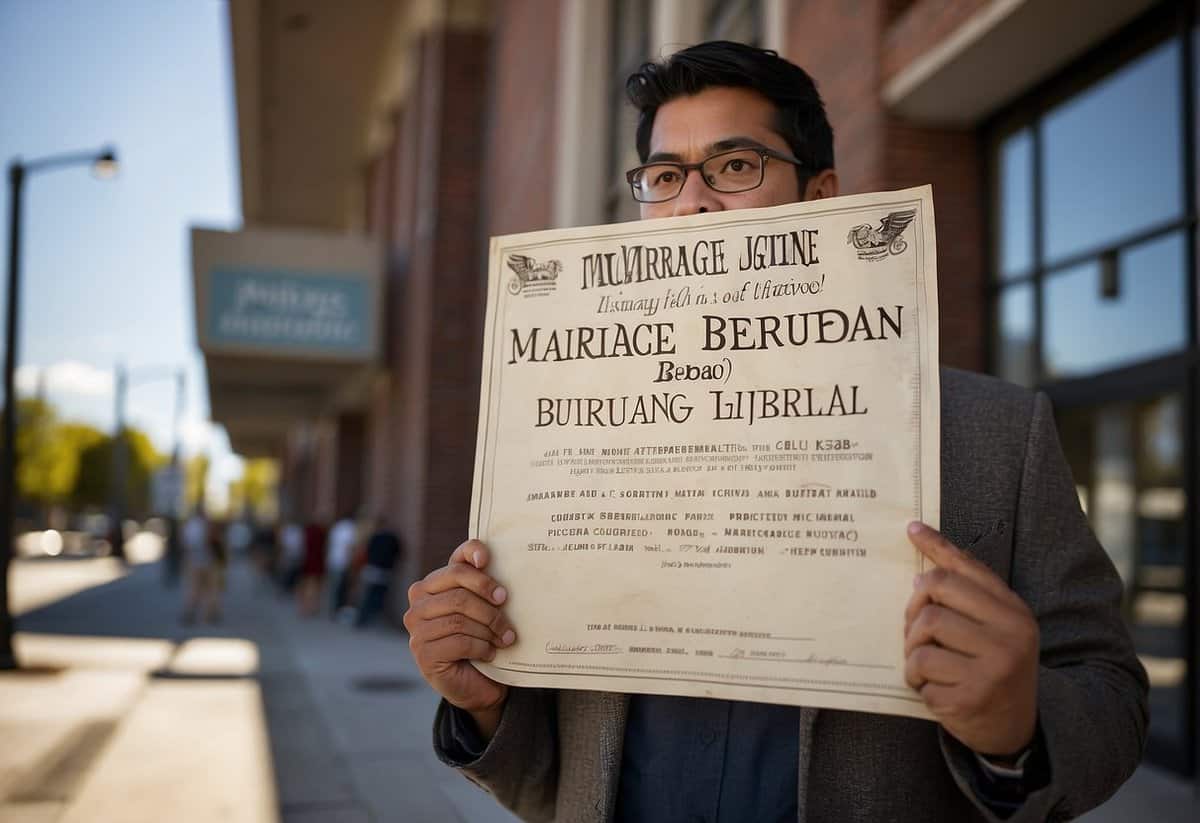Can I Remarry If I Am Not Divorced? Understanding Legal Marital Status
Remarrying when one is not divorced is a subject that frequently raises questions about legality, ethics, and personal consequences. Some individuals may consider getting remarried for various reasons, such as believing their initial marriage is void or because of a lack of understanding of the legal requirements. However, the act of entering into a marriage when one is still legally bound to another person is known legally as bigamy, which is a criminal offense in most jurisdictions. The repercussions of such an action extend beyond legal penalties; it affects personal relationships, social security, and benefits, as well as having possible religious and moral ramifications.

Understanding the legal and social implications of remarrying without a formal divorce is critical. In most places, a legal and binding marriage requires the dissolution of any previous marriages. The laws are clear: to remarry, one must first complete the divorce process from their current spouse. Additionally, individuals looking to remarry should be mindful that doing so might affect their entitlement to certain societal benefits like social security, especially if the previous marriage ended due to the spouse’s death or divorce, and could also complicate personal and familial dynamics substantially.
Key Takeaways
- Remarrying without a divorce can lead to legal complications, including the potential for criminal charges.
- Such an action can impact eligibility for social security benefits and other entitlements.
- This decision holds significant personal, family, and in some cases, religious consequences.
Legal Implications of Remarrying Without a Divorce

Before you consider stepping down the aisle again, it’s essential to be aware that remarrying without having finalized your divorce can lead to serious legal issues. This section delineates the possible legal ramifications that can arise from such an action.
Understanding Divorce Decrees
A divorce decree is a legal document provided by a court that officially ends your marriage. Without this decree, your existing marriage is legally in effect. If you’re planning to remarry, ensure that you have a signed and finalized divorce decree. You are not free to legally marry someone else until the official document is in your hands.
Consequences of Bigamy
Marrying someone else while you are still legally married to another person is known as bigamy, which is a criminal offense in many jurisdictions. Even if unintentional, if you remarry without finalizing your previous divorce, this action can lead to legal penalties that vary from fines to imprisonment. Learn more about the seriousness of this offense and ensure compliance with the law to avoid becoming unintentionally involved in bigamy.
Annulment Process
If you find yourself in a situation where you’ve remarried without being divorced, an annulment might become necessary. An annulment is a legal procedure that declares your second marriage null and void, as if it never occurred. This becomes essential to rectify the mistake and avoid the legal fallout from accidentally committing bigamy. The process for how to obtain an annulment can be complex, and it’s wise to consult with legal counsel familiar with family law and annulment process.
Impact on Social Security and Benefits

In navigating the waters of Social Security and benefits, it’s crucial to understand how your marital status, particularly remarrying, can directly affect what you’re entitled to. As your situation changes, so can your benefits.
Social Security Benefits After Remarriage
If you’re receiving Social Security benefits from your ex-spouse’s earnings record, remarrying might end those benefits. Upon remarrying, you generally cannot collect benefits from your previous spouse. Especially if you’re under 60 or under 50 but disabled (in which case the age drops to 50), getting remarried will cause you to lose eligibility for divorce benefits. However, if your remarriage ends by death, divorce, or annulment, you may become eligible for benefits from your ex-spouse again.
Impact on Retirement and Disability Benefits
Your own retirement benefits, based on your earnings record, won’t be affected by remarrying. The retirement benefit you’ve worked for is yours regardless of your marital status. Similarly, if you’re entitled to disability benefits on your own work record, your status as remarried doesn’t change the benefits you receive. However, if you’re a disabled widow or widower, the age you can remarry without affecting benefits is 50. For retirement benefits, if you’re collecting on a deceased spouse or qualifying ex-spouse’s record, remarriage after the age of 60 (or 50 if you are disabled) typically doesn’t prevent you from continuing to receive this benefit.
Religious and Moral Considerations of Remarrying

When you’re considering remarriage, it’s important to understand both the religious doctrines and the moral principles that may apply to your situation. Your faith’s perspective and the teachings within your sacred texts can significantly influence your decision.
Catholic Church’s View on Remarriage
The Catholic Church holds marriage to be a sacred and indissoluble union, and thus remarriage is not allowed if you’re not divorced. If you have been civilly divorced but not received an annulment, the Catholic Church views you as still married in the eyes of God and the Church. An annulment is a declaration by the Church that the union was not sacramentally valid. Without an annulment, the Catholic Church considers remarriage to be adulterous, a grave sin.
Biblical References About Marriage and Divorce
The Bible offers guidance on the subject of marriage, divorce, and remarriage. In the New Testament, 1 Corinthians 7 specifically addresses these issues. The scripture states that the bond between a husband and wife should not be broken, and that they are to live as a symbol of Christ and the Church, representing the love between the divine and the Bride of Christ. The Bible generally recommends that if you divorce, you should remain unmarried or reconcile with your spouse, reflecting the sacred nature of the marriage covenant.
Personal and Family Dynamics

When you’re not divorced but considering a new marriage, you need to navigate complex personal and family matters carefully. It’s essential to understand how your current marital status can affect parenting, legal documents, and relationships with a new spouse and any blended family dynamics.
Parenting and Responsibilities
If you already have children, it’s crucial to be aware that even without finalizing a divorce, you and your separated spouse share parental responsibilities. It’s important to communicate clearly about custody arrangements and support. If you enter a new relationship, it’s vital for your children to know their roles and relationships within the family structure will be respected and maintained.
Creating Wills and Legal Documents
Before your divorce is final, any legal documents, including your will, are still valid and will likely favor your not-yet-divorced spouse. To protect your interests and ensure your assets are managed as you wish, it’s necessary to update your will and other important legal documents to reflect your current situation and intentions.
New Spouse and Blended Families
Blending families without the closure of a divorce presents unique challenges. Your new spouse and any potential step-children should be introduced into family dynamics sensitively and thoughtfully. Acknowledge that creating a new family unit requires time, patience, and flexibility from everyone involved.
Frequently Asked Questions

Navigating the legal landscape of marriage and divorce can be complex. This section addresses key questions you may have if you’re considering remarrying before your current marriage is officially over.
Is it legal to remarry before my current marriage is legally terminated?
No, it is not legal to remarry before your current marriage has been legally terminated through a divorce decree. Doing so can result in legal complications and be considered bigamy.
What are the consequences if I get married again without finalizing my divorce?
If you remarry without finalizing your divorce, you could face penalties such as fines or even criminal charges for bigamy. Your second marriage may be considered invalid.
How long must I be separated from my spouse before I can remarry?
The waiting period to remarry after separation varies by state. Some states require 30 to 90 days, while others may require up to a year. Be sure to check your state’s laws.
Are marriage licenses checked for existing marriages before a new marriage is authorized?
Most states have systems in place to check if individuals are already married before issuing a new marriage license. It’s crucial to ensure you are legally divorced before applying.
What steps should I take if my spouse remarried before our divorce was finalized?
If your spouse remarried before your divorce was finalized, you may need to consult a family law attorney to understand the legal recourse available to you.
Can legal action be taken against someone who marries another person while still married?
Yes, legal action can be taken against someone who enters into a marriage while still married. This is considered bigamy and is a criminal offense in many jurisdictions.


